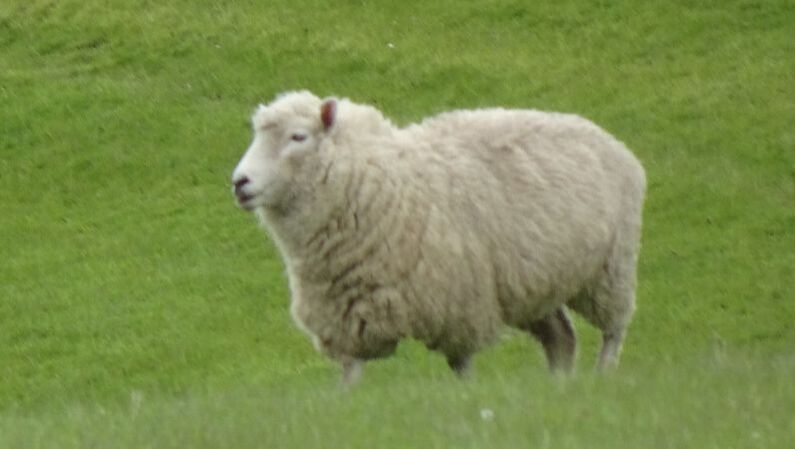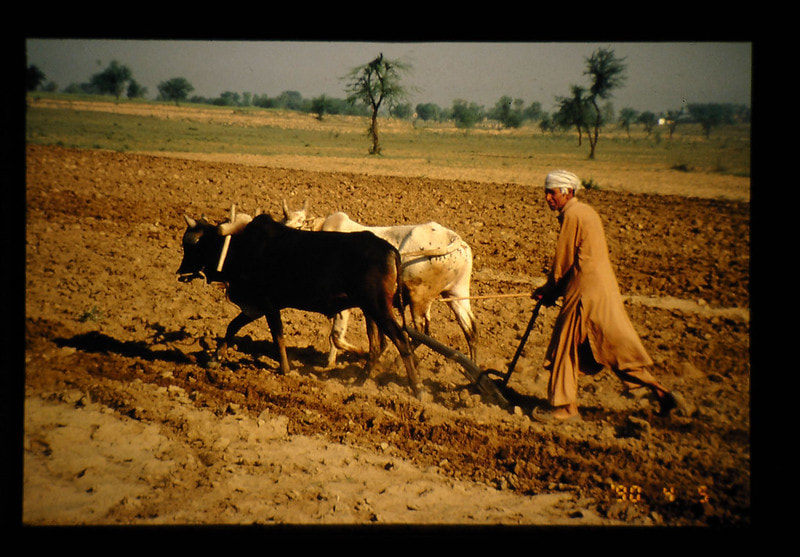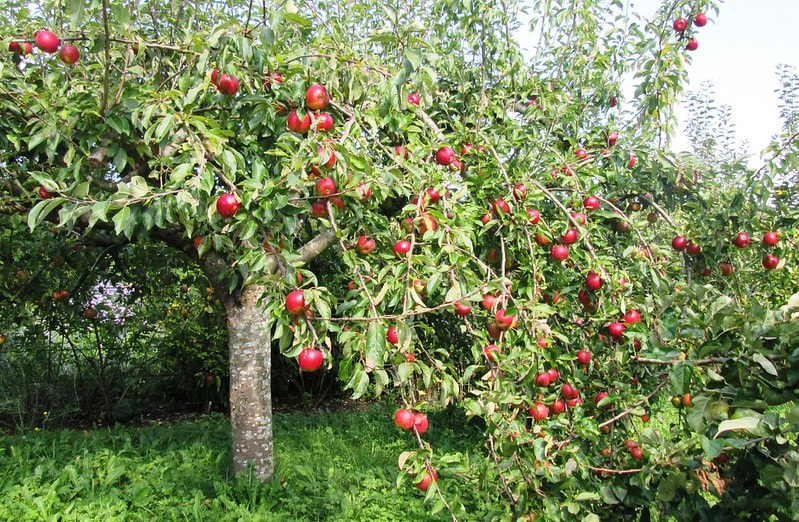|
God instructed Elijah to go to the top of the "mountain of God," Mt. Horeb, while He passed by. A powerful wind that shattered rocks, an earthquake and then a fire confronted Elijah, but the Lord was not in any of them. Finally, their came "a gentle whisper." This is how the Lord came to Elijah. (1 Kings 19:11-13)
The Lord still speaks in a gentle whisper, desiring us to stop our activities and be still before Him so that we can hear what He has to say. He has much competition through our world that is filled with sounds. Many individuals cannot walk down the street without plugged in ear buds. Computers and TVs offer us a plethora of talk shows where we can listen to people's opinions on numerous subjects. We are talking and texting our friends throughout the day and night. Have we remembered to set aside time to heed the voice of the Lord? Our relationship with the Lord is dependent on hearing Him, and our well-being is dependent upon hearing and obeying Him. After crossing the Red Sea, the Israelites were introduced to the character of God. They began to see His characteristics manifest before them. The first one was Jehovah Rapha, the God who Heals. As God healed the bitter waters at Marah, He told them, "If you listen carefully to the Lord your God and do what is right in His eyes, if you pay attention to His commands and keep all His decrees, I will not bring any of the diseases I brought on the Egyptians, for I am the Lord who heals you." (Exodus 15:26) Notice the keys to good health: Listen carefully and Obey (Do what is right). These directions are repeated in Deuteronomy 28. When Moses told the children of Israel the key to God's blessings, he said this: "If you diligently obey the voice of the Lord your God, to observe carefully all His commandments which I command you today, the Lord your God will set you high above all nations on the earth, and all these blessings shall come upon you and overtake you, because you obeyed the voice of the Lord your God." (Verses 1-2, NKJV) We must hear the voice of the Lord to know how to be obedient. Notice also that these instructions were the first ones that God gave to the Israelites after they came out of Egypt. In His economy, the things He places first have priority. Jeremiah the prophet had to correct the children of Israel concerning their priorities and activities as written in Chapter 7 of his book. He stood at the gate of the Lord's house and declared, "Hear the word of the Lord...Reform your ways and actions...You are trusting in deceptive words that are worthless...The Lord declared, 'I spoke to you again and again, but you did not listen; I called you, but you did not answer.'" (Verses 2, 3, 8, 13) The Lord spoke through Jeremiah when He said, "For I did not speak to your fathers, or command them in the day that I brought them out of the land of Egypt, concerning burnt offerings or sacrifices. But this is what I commanded them, saying, 'Obey My voice, and I will be your God, and you will be My people.'" (Verses 22-23, NKJV) Jesus affirmed the instructions in the Old Covenant when He said, "My sheep listen to my voice; I know them, and they follow me." (John 10:22) As Believers we are in covenant with God. Our part is to listen for His voice and then obey His instructions. May I suggest that not only does this tell us that we should regularly set aside time just to hear from the Lord but should also be listening for His still small voice as we go throughout our days. We carry the Presence of God wherever we go and have opportunities to demonstrate His love to others as He directs us into situations and tells us how to reflect His glory. Let us tune ourselves to the Lord's frequency so that we can hear Him and obey. "Don't burn your bridges!" Has anyone given you that advice? It sounds good on the surface but there are situations where burning the path to the past would be a demonstration of commitment to the future. Such was the case with the prophet Elisha.
After a victory over the prophets of Baal, Elijah retreated in fear. God was not finished with him, however, and revealed Himself to Elijah through the sound of a gentle whisper. Then, He gave him instructions, including anointing Elisha as his successor. Elisha was found plowing his field. "He was plowing with 12 yoke of oxen, and he himself was driving the 12th pair. Elijah went up to him and threw his cloak around him." (1 Kings 19:19) In Biblical times, the cloak was one of the most important pieces of clothing a person could own. It served many purposes—being used for protection against weather, bedding, a place to sit, a way to carry belongings, or a pledge for a debt. In this case, it represented the mantle of Elijah's calling from the Lord as a prophet. By transferring it to Elisha, Elijah was passing his responsibility and God's power to him. Elisha knew full well what was happening to him. "...Elisha then left his oxen and ran after Elijah. 'Let me kiss my father and mother goodbye,' he said, 'and then I will come with you.' Elijah asked, 'What have I done to you?'" (1 Kings 19:20) Elisha went back and did exactly what we are told not to do. He burned any bridge to the past. "He took his yoke of oxen and slaughtered them. He burned the plowing equipment to cook the meat and gave it to the people, and they ate. Then he set out to following Elijah and became his servant." (1 Kings 19:21) It is interesting that there were 12 pair of oxen since 12 is the number of apostolic fullness and divine government. Elisha realized that the call on his life had changed. He proved it by burning the plowing equipment and sacrificing the oxen to feed his family and friends. Think about this scene and the prophetic nature of it. Remember that plowing is the first step toward harvest. Elisha would be plowing, planting and harvesting new ground. He positioned himself for the future by sacrificing everything from the past. There would be no retreating to the old lifestyle. He was all in! We are in a new year and a new decade. What is God calling you to pursue? What do we need to "burn" so that we do not look back and can be free to press on to the call of God for the future with everything that is in us? We must look to our Messiah and His goal for us. Here is advice from the apostle Paul: “Not that I have already obtained all this, or have already been made perfect, but I press on to take hold of that for which Christ Jesus took hold of me. Brothers, I do not consider myself yet to have taken hold of it. But one thing I do: Forgetting what is behind and straining toward what is ahead, I press on toward the goal to win the prize for which God has called me heavenward in Christ Jesus." (Philippians 3:12-14) Jesus also warned those who would follow Him: "No one who puts a hand to the plow and looks back is fit for service in the kingdom of God." (Luke 9:62) There is always more ground to plow in the place where you are called to plant and harvest. Let us move forward as the Lord leads us. Fruit trees were very important in the Jewish culture. In fact, on the 15th of Shevat (the 11th month) they celebrate "The New Year for Trees," known as Tu b'Shevat. Tomorrow is that day, sometimes called Rosh Hashanah for Trees. We see in Deuteronomy 20:19 that people are compared to trees. The chapter includes instructions on how to go to war. God's people were not to cut down fruit trees when they laid siege to a city. The question is asked in Verse 19, "Are the trees people, that you should besiege them?" Fruit trees were planted so that their fruit could be eaten.
The main reason this holiday was established was so that God would be correctly honored with the fruit the trees produced. Leviticus 19:23-25 tells us this: "When you enter the land and plant any kind of fruit tree, regard its fruit as forbidden. For three years you are to consider it forbidden; it must not be eaten. In the fourth year all its fruit will be holy, an offering of praise to the Lord. But in the fifth year you may eat its fruit. In this way your harvest will be increased. I am the Lord your God." The purpose of the new year is for calculating the age of trees for tithing. Each tree is considered to have aged one year as of the 15th of Shevat. If you plant a tree any time before the 15th of Shevat it begins its 2nd year on the 15th. But if you plant a tree two days later, for example, it does not reach its 2nd year until the 15th of Shevat the following year. What does this mean for us? When Jesus spoke to His disciples, He told stories to make His point. It was common for Him to talk about trees and compare them to humanity. In Matthew 7:15-20 He warned His disciples to watch out for false prophets. How were they to recognize them? They would do so by the fruit they produced. Good trees bear good fruit, but bad trees bear bad fruit. He repeats this theme of judging a tree by its fruit in Matthew 12:33. "Make a tree good and its fruit will be good, or make a tree bad and its fruit will be bad, for a tree will be recognized by its fruit." In Psalm 1 we are compared to fruit trees and told that the Lord blesses those who delight in His law and meditate on it day and night. "That person is like a tree planted by streams of water, which yields its fruit in season and whose leaf does not wither—whatever they do prospers." (Psalm 1:3) Verse 6 tells us that "The Lord watches the way of the righteous." The prophet Jeremiah repeats this theme. "But blessed is the one who trusts in the Lord, whose confidence is in Him. They will be like a tree planted by the water that sends out its roots by the stream. It does not fear when heat comes; its leaves are always green. It has no worries in a year of drought and never fails to bear fruit." (Jeremiah 17:7-8) What we take in impacts our fruit. We need to be all about producing strong roots through our faith and commitment to the Lord, for strong roots produce good fruit. What we partake of can produce nourishment which strengthens us. Let's be aware of what we are eating and drinking. It is the Word of God and the Living Water that strengthen our roots and help us to grow in righteousness. Righteousness needs to be our foundation. We must ask ourselves, "What kind of fruit are we producing?" Are we producing a crop that will feed the next generation? What kind of "trees" are planted in our fields? Are they bearing good fruit, or do they need to be cut down? The Lord is our Righteous Savior (Jeremiah 23:6)—Jehovah Tsidkenu—"The Lord our Righteousness." As we partake of Him, our Daily Bread and our Living Water, we will produce a bounty of good fruit.  Perhaps you remember a story that broke in 2004 about a sheep that was lost for six years. He ran away from his home in Bendigo Station, New Zealand, and hid in caves. "Faith Inspired" recently posted the story on Facebook. Named Shrek, he was one of a flock of 17,000 Merino sheep. This breed does not shed their fleece, unlike other breeds. After six years of growing wool he was unrecognizable as a sheep. He could hardly see because there was so much fleece in his face. We are told how dangerous it is for a sheep to carry such a weight of fleece. Shrek was shaved with his fleece weighing in at 60 lbs. A normal weight for sheep's fleece is just under 10 lbs. Dave Thomas, Head of Sheep Studies at the University of Wisconsin warned how dangerous it is for a sheep to carry so much weight for the following reasons: (1) Heat stress commonly occurs in the summer. (2) The weight creates mobility issues. (3) Vision is impaired. (4) If the sheep fall over, they may not be able to get off their backs.
What weight Shrek carried without a shepherd to care for him! This wanderer could represent any Christian who strays from our Shepherd. David, the writer of Psalm 23, writes about the Good Shepherd: "The Lord is my Shepherd, I lack nothing." In Hebrew the word is Roi which means "watches over." We are blessed that God saw our great need for someone to watch over us. God gave His only Son, Jesus, to be the Lamb who laid down His life for us and the Shepherd who brings us home when we stray. Here is how Isaiah 53:6-7 expresses it: "We all like sheep, have gone astray, each has turned to our own way; and the Lord has laid on Him the iniquity of us all." In mercy God calls us back to Himself. He wants us to remain in His flock so that He can lead us beside quiet waters and restore our souls. He guides us on paths of righteousness for His name sake. We need not fear evil for His rod and staff comfort us. (Psalm 23:2-3) A beautiful picture of our Shepherd is painted in Revelation 7:17. "For the Lamb at the center of the throne will be their shepherd; He will lead them to springs of living water. And God will wipe away every tear from their eyes." Our cave-hiding sheep, Shrek, carried a horrible burden from the weight of his fleece because he stayed away from his shepherd for so long. The Lord spoke to our issue of carrying unnecessary burdens in Matthew 11:28-30. "Come to me, all you who are weary and burdened, and I will give you rest. Take my yoke upon you and learn from me, for I am gentle and humble in heart, and you will find rest for your souls. For my yoke is easy and my burden is light." Jesus, the Good Shepherd, is all in as it tells us in John 10:14-18. "I am the Good Shepherd; I know my sheep and my sheep know me—just as the Father knows me and I know the Father—and I lay down my life for the sheep. I have other sheep that are not of this sheep pen, I must bring them also. They too will listen to my voice, and there shall be one flock and one shepherd. The reason the Father loves me is that I lay down my life—only to take it up again. No one takes it from me, but I lay it down of my own accord..." Christ our Shepherd, extends amazing love to us with a promise to care for us and lead us into our destiny. We belong to Him! Recognize that He spares nothing for our welfare. Let's not be like Shrek and carry unnecessary burdens that keep us from our Shepherd whose loving care will cause us to prosper and flourish. |
Joan E. MathiasCategories
All
Archives
July 2024
|



 RSS Feed
RSS Feed